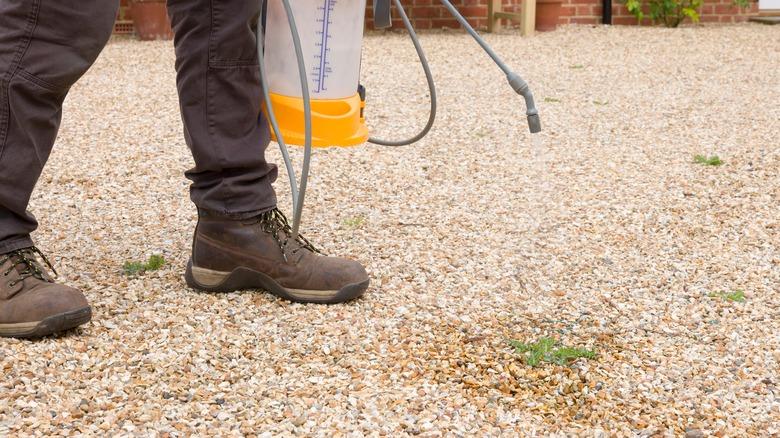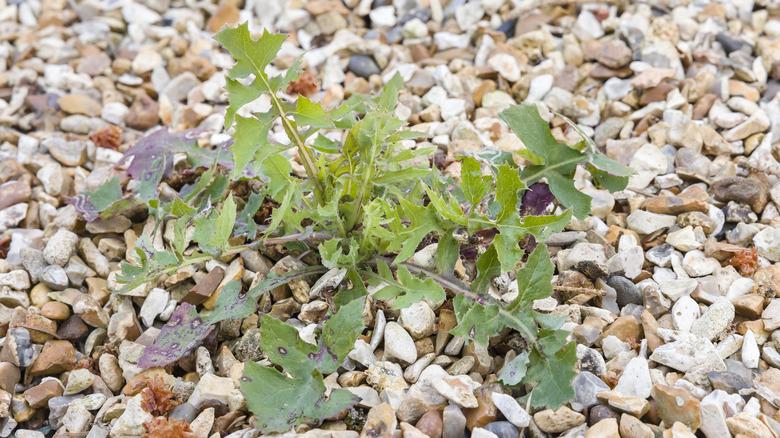Foolproof Ways To Get Rid Of Weeds Growing In Your Gravel Driveway
Gravel construction makes for a truly durable driveway, with some people claiming they can last for 100 years. But during that long life it can be plagued with weeds. The question then becomes how to get rid of them. There are powerful herbicides that are extremely effective, such as glyphosate, the active ingredient in Roundup is an example. Because these can be dangerous, and you should always use proper safety precautions when using products like Roundup, many folks want to stay away from these herbicides. So, how can you get rid of the weeds growing in your gravel driveway safely? Here are a few methods to get the job done.
Removing them by hand is the most effective way to get rid of weeds. Wet the driveway to loosen the organic matter and gently pull them out by the root. By removing the root with the plant, it will not be able to grow back. Effective, but tremendously time-consuming.
Using a garden torch powered by propane is another effective technique. It kills the plants, and if the root system is shallow enough, it will kill that, too. Take precautions to avoid starting a fire by keeping a water hose close by. The heat may discolor the gravel, which might bother some folks.
DIY weed killer is another way to kill weeds. One particular recipe is made with vinegar, salt, and dish soap. The salt dehydrates the plant's roots, the vinegar removes the moisture from the plant, and the soap makes the combination stick to the plant. (You can also modify the formula using baking soda and vinegar.) Simply apply it with a spray bottle. It's most effective on young weeds and in direct sunlight. As it is not a true herbicide, it may require several applications to fully kill the weeds.
Stepping up your efforts
Harking back to the ancient Romans when they sewed Carthage's (their arch enemies) fields with salt, you, too, can take the dramatic step of using rock salt to kill the weeds in your gravel driveway. Applied in sufficient amounts, rock salt will permanently kill weeds. The danger is that as it dissolves in the rain, the sodium chloride will flow to other areas and kill any plant it comes in contact with. Its effects can be long-lasting. Good for driveways, not so much for where it may flow to.
By using a non-chemical way to kill the weeds, with landscape fabric, for example, you can avoid long-term accidental plant killing. Landscape fabric comes with its own pros and cons. Laying the fabric, staking it in place, and applying a new layer of gravel over the top is labor-intensive and not cheap. But it is very effective. Another non-toxic covering option to try is putting black plastic over the areas where the weeds are growing in the driveway. Blocking out light and water will kill the weeds. It is not a quick method and is most practically used in smaller areas.
You may have heard of using boiling water. This is seldom a truly effective way to kill the weeds, as it usually does not harm the root system sufficiently to kill the plant. But it highlights a general rule about non-herbicide methods of weed killing. The weeds, once established, will often return. They are persistent survivors. These methods are indeed effective at killing weeds, but don't be discouraged if they come back to some degree later on.

